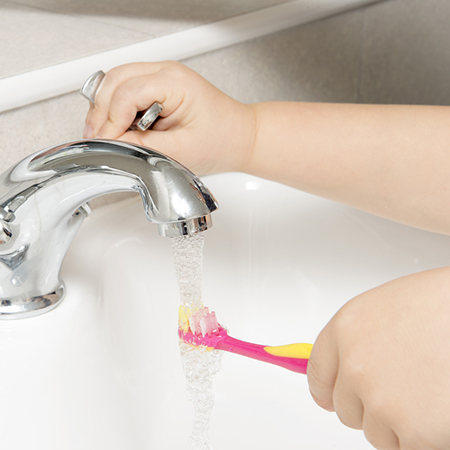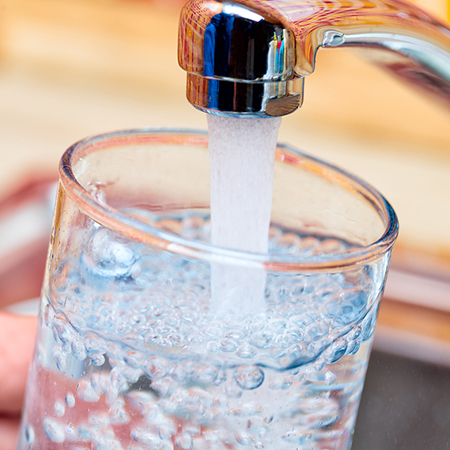What Are the Top 5 Considerations When Purchasing a Water Treatment System?
 Water is the foundational building block for life. Every day, we use water to brush our teeth, take a shower, washing clothing and dishes, cook and hydrate. According to the U.S. Geological Survey by the Water Science School, the average American household with four people uses more than 86,000 gallons of water a year! Though the water that flows into our homes meets federal standards for safety, it often contains chemicals and parasites that we do not want to consume. Investing in a water treatment solution is the best way to ensure that your water is free of unpleasant and potentially dangerous contaminates.
Water is the foundational building block for life. Every day, we use water to brush our teeth, take a shower, washing clothing and dishes, cook and hydrate. According to the U.S. Geological Survey by the Water Science School, the average American household with four people uses more than 86,000 gallons of water a year! Though the water that flows into our homes meets federal standards for safety, it often contains chemicals and parasites that we do not want to consume. Investing in a water treatment solution is the best way to ensure that your water is free of unpleasant and potentially dangerous contaminates.
If you are considering installing a water treatment center, there are 5 important questions to answer:
1. Do you have city water or a private well?
Where your water comes has a big impact on the types of contaminates that may be in the water. Studies have found that as many as 40% of private wells contain either coliform bacteria, E.coli or both. Every day on average, there are more than 650 boil water alerts issued by cities and local water districts because of ruptured or contaminated pipes. Knowing the source of your water can help you to determine the best filtration system for your home.
2. How many people are in your household?
The number of people in your household impacts the amount of water that you consume every day. A home with five people uses significantly more water than a home with two. It is important to choose a water filtration system that has the correct capacity for you. You will want to have an approximate idea of how much water you use in a 24-hour period.
3. How many bathrooms do you have?
Taking into consideration how many bathrooms you have will also help you to figure out how much water you use in a 24-hour period. A family of five with three bathrooms can use more water in a day than a family of the same size with only one bathroom because different people can be using water in all three bathrooms at the same time.
4. Would you prefer a whole house or only a drinking water filtration system?
Drinking water filtration systems are the most common but they aren’t always the most beneficial. Installing a water filtration system for your whole house can save you time and money. Instead of installing a water filter that has to be routinely replaced on every sink, you can use one system to filter all of your water that has longer lasting filters. A whole house filtration system can be especially beneficial for pool and spa owners who want to fill their pool with filtered water. Improving the quality of your water can make your showers more refreshing and clothes brighter. It can also eliminate unattractive hard water rings. It is a good idea to consider which would be best for your home.
5. What contaminates are in your water?
This is the most important question. Finding out the answer to this question will help you determine whether you should use a typical water filter or reverse osmosis water filter. Typical water filters are great at removing sediment but are not very effective at removing health-related contaminates like harsh metals. Reverse osmosis filters can remove everything from unpleasant scents and tastes to toxic contaminates like lead.
The Environmental Protection Agency (EPA) requires all local water systems to annually report their water quality to their customers. This report is known as the Consumer Confidence Report (CCR) in most areas. You can find it by visiting the EPA’s website. It is also a good idea to have an in-home water test so that you have the most accurate knowledge about your water quality.
Answering these five questions can take time but it is worth it. You deserve to have confidence that the water you drink is safe and free from unpleasant contaminates. The answers to these questions will help you find the filter that’s best for you.
